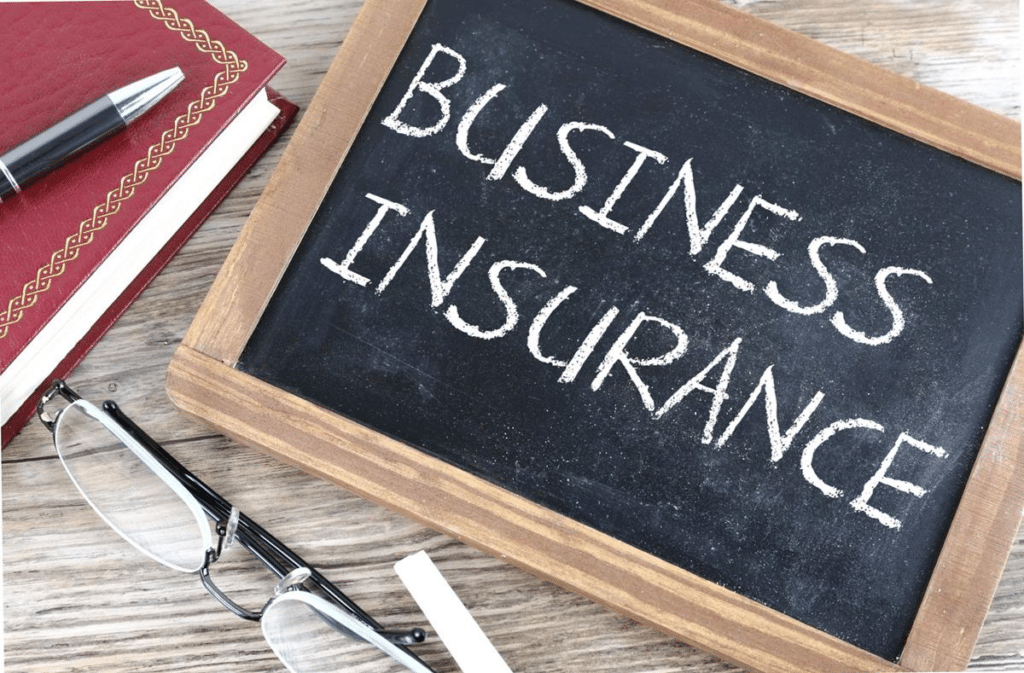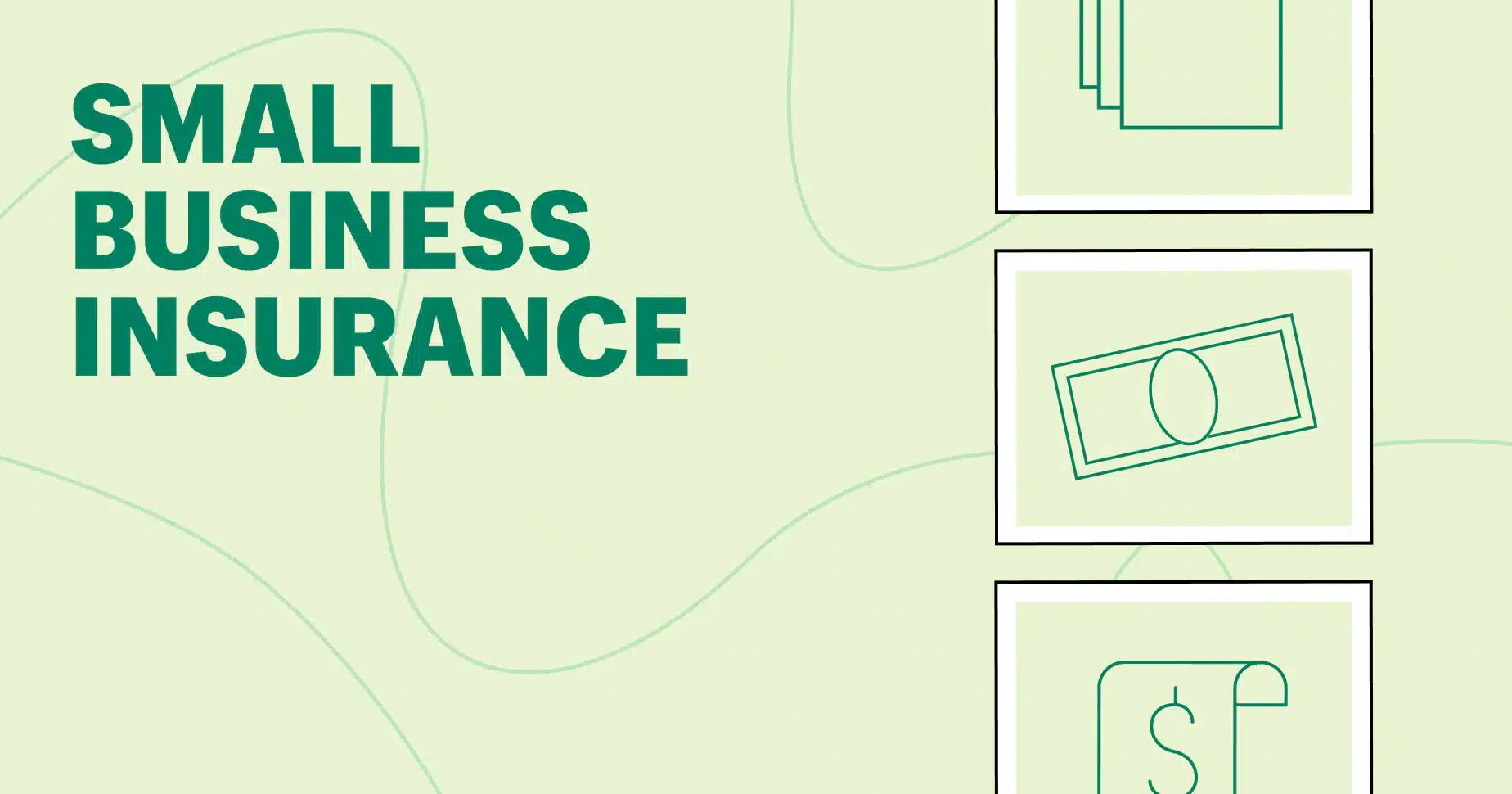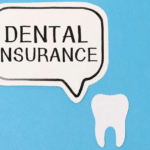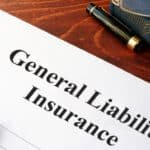Starting and running a small business comes with a variety of risks. From liability issues and employee-related risks to property damage and natural disasters, there are many uncertainties that could potentially derail your business. That’s where small business insurance comes into play. It helps protect your business against various risks, ensuring that you can continue operations smoothly and safeguard your assets.
In this article, we’ll explore the different types of small business insurance, why it’s crucial for your company’s long-term success, and how to choose the right coverage. We’ll also address common questions surrounding small business insurance and provide a comprehensive guide to help you understand the ins and outs of insurance planning for small businesses.
Key Takeaways
- Small business insurance protects your business from financial loss due to accidents, lawsuits, property damage, and other risks.
- There are several types of small business insurance, including general liability, property insurance, workers’ compensation, and professional liability.
- Choosing the right insurance coverage depends on your business type, risks, and legal requirements.
- Regularly reviewing and updating your insurance policy is essential to ensure it continues to meet your business needs.
- Working with an insurance broker can help you find the best policies and rates for your business.
What is Small Business Insurance?

Small business insurance is a type of coverage designed to protect small business owners from the financial consequences of unexpected events that could threaten the viability of their operations. These policies can cover a wide range of risks, such as property damage, legal claims, employee injuries, and other potential financial losses.
Small business insurance packages are usually tailored to meet the specific needs of your business and can include various types of coverage depending on the size and scope of your operations. It acts as a safety net, providing financial protection in situations where business owners might otherwise face catastrophic financial losses.
Why is Small Business Insurance Important?
Small business insurance is crucial because it can protect your business from financial setbacks caused by accidents, lawsuits, property damage, or other unforeseen events. Consider the following reasons why small business insurance is necessary:
1. Protection Against Liability Claims
Business liability insurance helps protect against lawsuits, legal fees, and settlements that may arise if your business causes harm or injury to others. This is especially important for businesses that work with clients, customers, or the public, as you could be held liable for accidents that occur on your property or as a result of your products and services.
2. Safeguarding Business Assets
Business assets such as your building, inventory, equipment, and other property are valuable. Property insurance can help protect against damage from fire, theft, vandalism, or natural disasters. Without insurance, the cost of replacing damaged or lost assets could put your business in jeopardy.
3. Employee Protection
As a business owner, you are legally responsible for your employees’ safety and wellbeing. Workers’ compensation insurance helps cover medical costs and lost wages for employees injured on the job. In some states, this coverage is mandatory, but even if it’s not, it’s a smart investment in your employees’ health and safety.
4. Ensuring Business Continuity
Unexpected events such as fires, theft, or a major lawsuit can disrupt your business operations. Business interruption insurance helps cover lost income and fixed expenses during a period of shutdown or disruption. This coverage ensures that you can recover and resume normal business activities without suffering financial collapse.
5. Compliance with Legal Requirements
In many cases, certain types of insurance are required by law. For example, workers’ compensation insurance is mandated in most states, while certain industries may be required to carry professional liability insurance. Having the right insurance ensures that you remain compliant with state and local laws.
6. Enhancing Credibility
When you have insurance coverage, it shows customers, partners, and investors that you are a responsible business owner who values risk management. This can enhance your credibility and reputation, building trust with stakeholders and giving you a competitive edge in the marketplace.
Types of Small Business Insurance
There are several types of small business insurance policies available, each designed to protect your business in different ways. The right combination of coverage will depend on the nature of your business, its location, and the risks you face.
1. General Liability Insurance
General liability insurance is one of the most essential forms of insurance for small businesses. It provides coverage in case your business is sued for causing harm to a third party, whether it’s property damage or bodily injury. This type of insurance can cover medical expenses, legal fees, and potential settlements.
Key Features:
- Covers bodily injury or property damage claims.
- Pays for legal costs related to a lawsuit.
- Can also protect against advertising injury, such as defamation or copyright infringement.
2. Commercial Property Insurance
This type of insurance helps protect your business property, including buildings, equipment, inventory, and supplies. It covers damage caused by fires, storms, theft, vandalism, or other disasters. Property insurance is essential if you own or lease office space, a storefront, or any physical location where business operations take place.
Key Features:
- Covers physical property damage or loss.
- Can include coverage for inventory and equipment.
- Can be tailored to include special types of coverage such as flood or earthquake damage.
3. Workers’ Compensation Insurance
Workers’ compensation insurance is mandatory in most states and helps cover medical expenses, lost wages, and rehabilitation costs for employees injured on the job. It also protects your business from lawsuits related to employee injuries, as workers’ comp is typically the exclusive remedy for job-related injuries.
Key Features:
- Provides coverage for medical expenses and lost wages.
- Protects against potential lawsuits filed by employees injured while working.
- Coverage can also extend to rehabilitation and vocational retraining.
4. Professional Liability Insurance
Also known as errors and omissions (E&O) insurance, professional liability insurance protects businesses that provide professional services or advice. It covers claims related to mistakes, negligence, or failure to deliver promised services. This is particularly important for consultants, lawyers, doctors, and accountants.
Key Features:
- Covers claims of negligence or mistakes.
- Essential for service-based businesses.
- Pays for legal defense costs, settlements, or judgments.
5. Business Interruption Insurance
Business interruption insurance is designed to provide financial assistance if your business is forced to close temporarily due to a covered event, such as a fire, natural disaster, or vandalism. It helps replace lost income during the period that your business cannot operate.
Key Features:
- Covers loss of income during a shutdown.
- Can help pay for ongoing expenses like rent and utilities.
- Often sold as part of a business owner’s policy (BOP).
6. Product Liability Insurance
Product liability insurance covers businesses that manufacture, sell, or distribute products. If one of your products causes injury or damage, product liability insurance can cover the costs of lawsuits, medical bills, and settlements.
Key Features:
- Covers injuries or damages caused by a product.
- Essential for businesses involved in manufacturing, retail, or product sales.
- Helps protect your business from lawsuits related to defective products.
7. Commercial Auto Insurance
If your business uses vehicles for transportation, delivery, or other operations, commercial auto insurance is essential. This type of insurance covers vehicles used for business purposes in case of accidents, damage, or theft.
Key Features:
- Covers accidents involving company-owned vehicles.
- Includes coverage for vehicle damage, medical expenses, and liability.
- Offers protection for both personal and business use vehicles.
How to Choose the Right Small Business Insurance

Choosing the right small business insurance can seem overwhelming, but it’s essential to evaluate your specific risks and needs. Here are a few tips to help guide your decision-making process:
1. Assess Your Business Risks
Start by identifying the unique risks associated with your business. Consider factors like the size of your business, the number of employees, the type of products or services you offer, and whether your business involves physical locations or vehicles. This will help you determine the types of coverage that are most relevant to your business.
2. Evaluate Legal Requirements
Make sure you are aware of the legal insurance requirements in your state and industry. Certain types of insurance, such as workers’ compensation and commercial auto insurance, may be required by law, while others may be necessary depending on the nature of your business.
3. Compare Policies and Rates
Insurance premiums can vary significantly depending on the provider, policy type, and level of coverage. Shop around and obtain quotes from multiple insurance companies. Compare the cost, coverage limits, and exclusions to find the policy that best suits your business needs.
What is Small Business Insurance?
Small business insurance is a type of coverage designed to protect small business owners from the financial consequences of unexpected events that could threaten the viability of their operations. These policies can cover a wide range of risks, such as property damage, legal claims, employee injuries, and other potential financial losses.
Small business insurance packages are usually tailored to meet the specific needs of your business and can include various types of coverage depending on the size and scope of your operations. It acts as a safety net, providing financial protection in situations where business owners might otherwise face catastrophic financial losses.
Why is Small Business Insurance Important?
Small business insurance is crucial because it can protect your business from financial setbacks caused by accidents, lawsuits, property damage, or other unforeseen events. Consider the following reasons why small business insurance is necessary:
Protection Against Liability Claims
Business liability insurance helps protect against lawsuits, legal fees, and settlements that may arise if your business causes harm or injury to others. This is especially important for businesses that work with clients, customers, or the public, as you could be held liable for accidents that occur on your property or as a result of your products and services.
Safeguarding Business Assets
Business assets such as your building, inventory, equipment, and other property are valuable. Property insurance can help protect against damage from fire, theft, vandalism, or natural disasters. Without insurance, the cost of replacing damaged or lost assets could put your business in jeopardy.
Employee Protection
As a business owner, you are legally responsible for your employees’ safety and wellbeing. Workers’ compensation insurance helps cover medical costs and lost wages for employees injured on the job. In some states, this coverage is mandatory, but even if it’s not, it’s a smart investment in your employees’ health and safety.
Ensuring Business Continuity
Unexpected events such as fires, theft, or a major lawsuit can disrupt your business operations. Business interruption insurance helps cover lost income and fixed expenses during a period of shutdown or disruption. This coverage ensures that you can recover and resume normal business activities without suffering financial collapse.
Compliance with Legal Requirements
In many cases, certain types of insurance are required by law. For example, workers’ compensation insurance is mandated in most states, while certain industries may be required to carry professional liability insurance. Having the right insurance ensures that you remain compliant with state and local laws.
Types of Small Business Insurance
There are several types of small business insurance policies available, each designed to protect your business in different ways. The right combination of coverage will depend on the nature of your business, its location, and the risks you face.
General Liability Insurance
General liability insurance is one of the most essential forms of insurance for small businesses. It provides coverage in case your business is sued for causing harm to a third party, whether it’s property damage or bodily injury. This type of insurance can cover medical expenses, legal fees, and potential settlements.
Commercial Property Insurance
This type of insurance helps protect your business property, including buildings, equipment, inventory, and supplies. It covers damage caused by fires, storms, theft, vandalism, or other disasters. Property insurance is essential if you own or lease office space, a storefront, or any physical location where business operations take place.
Workers’ Compensation Insurance

Workers’ compensation insurance is mandatory in most states and helps cover medical expenses, lost wages, and rehabilitation costs for employees injured on the job. It also protects your business from lawsuits related to employee injuries, as workers’ comp is typically the exclusive remedy for job-related injuries.
Professional Liability Insurance
Also known as errors and omissions (E&O) insurance, professional liability insurance protects businesses that provide professional services or advice. It covers claims related to mistakes, negligence, or failure to deliver promised services. This is particularly important for consultants, lawyers, doctors, and accountants.
Business Interruption Insurance
Business interruption insurance is designed to provide financial assistance if your business is forced to close temporarily due to a covered event, such as a fire, natural disaster, or vandalism. It helps replace lost income during the period that your business cannot operate.
Product Liability Insurance
Product liability insurance covers businesses that manufacture, sell, or distribute products. If one of your products causes injury or damage, product liability insurance can cover the costs of lawsuits, medical bills, and settlements.
Commercial Auto Insurance
If your business uses vehicles for transportation, delivery, or other operations, commercial auto insurance is essential. This type of insurance covers vehicles used for business purposes in case of accidents, damage, or theft.
How to Choose the Right Small Business Insurance
Choosing the right small business insurance can seem overwhelming, but it’s essential to evaluate your specific risks and needs. Here are a few tips to help guide your decision-making process:
Assess Your Business Risks
Start by identifying the unique risks associated with your business. Consider factors like the size of your business, the number of employees, the type of products or services you offer, and whether your business involves physical locations or vehicles. This will help you determine the types of coverage that are most relevant to your business.
Evaluate Legal Requirements
Make sure you are aware of the legal insurance requirements in your state and industry. Certain types of insurance, such as workers’ compensation and commercial auto insurance, may be required by law, while others may be necessary depending on the nature of your business.
Compare Policies and Rates
Insurance premiums can vary significantly depending on the provider, policy type, and level of coverage. Shop around and obtain quotes from multiple insurance companies. Compare the cost, coverage limits, and exclusions to find the policy that best suits your business needs.
Work with an Insurance Broker
Consider working with an insurance broker who can help guide you through the insurance process. A broker can help you evaluate your business’s needs, compare policies, and find the best coverage at the most affordable price.
4. Work with an Insurance Broker
An insurance broker can help guide you through the process of selecting the right insurance for your business. Brokers work with multiple insurance carriers and can recommend policies tailored to your specific industry and business needs.
Read More : What is Tax Planning and How Can It Help You Save Money?
Conclusion
Small business insurance is an essential part of managing the risks associated with running a business. It helps protect your assets, employees, and income from unexpected events that could otherwise lead to significant financial losses. By understanding the different types of coverage available and assessing your specific needs, you can create a comprehensive insurance plan that ensures your business remains secure and resilient.
FAQs
1. What types of small businesses need insurance?
All businesses, regardless of size, should have some form of insurance. Small businesses, in particular, need insurance to protect themselves from the risks they face. Industries such as retail, healthcare, manufacturing, and consulting, for example, have specific insurance needs.
2. Is small business insurance required by law?
Certain types of insurance, such as workers’ compensation and commercial auto insurance, are required by law in most states. However, the exact requirements vary by state and industry.
3. How much does small business insurance cost?
The cost of small business insurance depends on various factors, including the type of coverage, the size of your business, the industry, and your claims history. Small business insurance can cost anywhere from a few hundred dollars to several thousand dollars per year.
4. What is the difference between general liability and professional liability insurance?
General liability insurance covers bodily injury or property damage caused by your business, while professional liability insurance (errors and omissions insurance) covers negligence or mistakes related to the services you provide.
5. Do I need business interruption insurance?
If your business relies on a physical location or equipment to operate, business interruption insurance is highly recommended. It can help cover lost income and expenses during a temporary shutdown.
6. Can I bundle different types of insurance?
Yes, many insurance providers offer business owner policies (BOPs) that bundle several types of coverage, such as general liability, property, and business interruption insurance, at a discounted rate.
7. How do I file a claim?
To file a claim, contact your insurance provider and report the incident. Provide all relevant documentation, such as police reports, invoices, and photos, to support your claim. Your insurer will guide you through the process.





